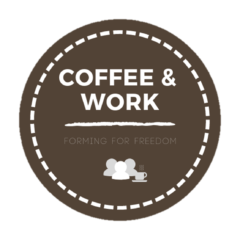
News, reports, videos, and other content under the umbrella of the expression “future of work” increases every day. However, what it really means? Is there just one definition to the word work? Furthermore, about the future: how many different perspectives define it?
Those questions might address distant aspects from daily practices in organisations and markets, but they sustain values and choices made by people while they work. This essay will discuss some reasons why the definition of work must be redefined before the further development of predictions concerning the future of work.
The first topic that should be considered is the difference between work and employability. Most of the content published on the future of work is devoted to jobs lost to technology or the skills to build on to fit into the new job prescriptions. However, even if the job dimension is a fair concern, work goes beyond it, especially in the capitalist system. While living such a facet of life, people build knowledge, values, concepts to guide their lives. The way a person experiences his/her work activity shapes his/her body physically, mentally, and spiritually.
The second thought that should be considered to face the future of work unfolds the previous one concerning the worldview related to human life. If jobs can be described based on contracts, laws, prescriptions, and many concrete materials, explaining work demands a deeper analysis. How is one’s prevalent mood? Is he/she able to recognise what has been learnt, what is new in daily routines? The learning process of technical knowledge is important, but it does not last. Getting in touch with different situations and recognising their singularity makes work less tangible and complex to approach.
From the complexity around one’s work, it can be understood the third aspect to keep in mind to reshape the future of work. The definition of work must be as sophisticated as the technology that supports it. How to access this sophistication? The hypothesis lays on developing strategies to talk about one’s work translating in words the perceptions resulting from his/her work experience.
In conclusion, approaching the future of work should dig deeper into the human experiences by creating possibilities to talk about it and going further than the tangible dimensions related to the job. The challenges are multiples, but it is urgent to reduce the speed of creating external tools to define work and focus on deep learning to deal with it, tackling, then, its gains and losses.

Gislene Feiten Haubrich – Coffee and Work’ creator. PhD in Cultural Processes and Manifestations. Member of the Research Group on Collaborative Spaces. Collaborator at CITCEM/University of Porto.
